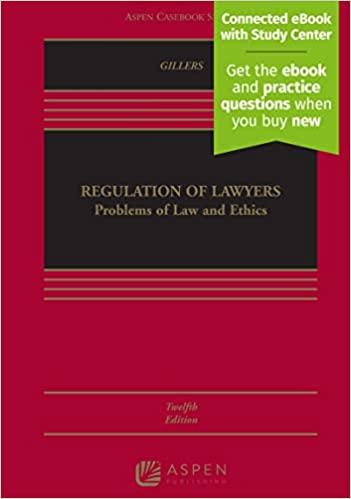Question
Did it make sense for the Blue Chips court to exclude (1) potential purchasers who decided not to purchase because of an overly gloomy representation
Did it make sense for the Blue Chips court to exclude (1) potential purchasers who decided not to purchase because of an overly gloomy representation or the omission of favorable material and (2) actual shareholders who decided not to sell shares based on an overly optimistic representation from the list of possible 10b5 plaintiffs?
The line of cases in this area begins with the seminal 1975 case of Blue Chip Stamps v. Manor Drug Stores. Pursuant to a court order following an antitrust claim, Blue Chip was obligated to offer company shares to certain vendors who had utilized the firm's services. Manor Drug Stores, a member of that class of vendors, alleged that, had it not been deceived by means of a misleading Blue Chip prospectus, it would have purchased the securities offered. The Supreme Court ruled that Manor did not have standing to bring a Section 10(b) claim because it was neither a purchaser nor a seller of securities. As a result of the Court's decision in Manor, only actual purchasers and sellers may bring claims.
https://supreme.justia.com/cases/federal/us/421/723/
Step by Step Solution
There are 3 Steps involved in it
Step: 1

Get Instant Access to Expert-Tailored Solutions
See step-by-step solutions with expert insights and AI powered tools for academic success
Step: 2

Step: 3

Ace Your Homework with AI
Get the answers you need in no time with our AI-driven, step-by-step assistance
Get Started


